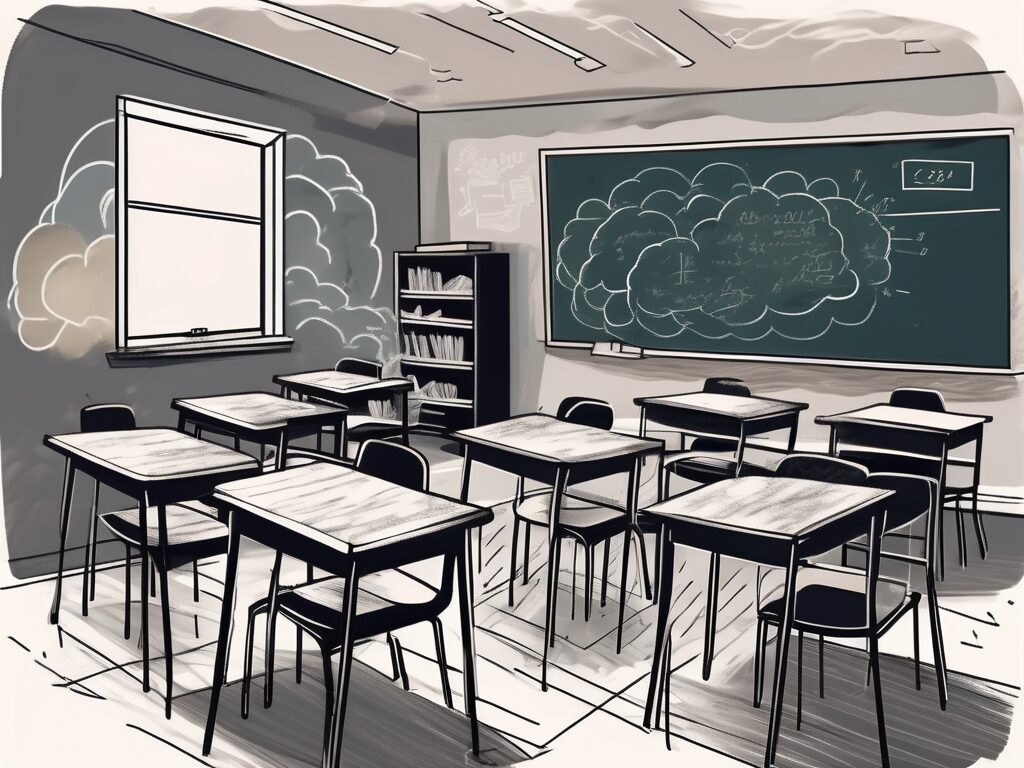Singapore, known for its high-performing education system, is often hailed as a model for other countries. However, like any system, it is not without its challenges. For teachers with a Master’s in Education, navigating these issues can be particularly complex. This article will delve into six key problems that these educators face in the Singaporean education system.
1. High Academic Pressure
The first issue is the high academic pressure. Singapore’s education system is renowned for its rigour and high standards. However, this also translates into immense pressure on students to perform acadically. This pressure often falls on the shoulders of teachers, who are expected to ensure their students excel.
For teachers with a Master’s in Education, this pressure can be even more intense. They are often seen as the ‘cream of the crop’ and are therefore expected to produce top-performing students. This high expectation can lead to stress and burnout, affecting the quality of teaching and learning in the classroom.
2. Rote Learning
The second issue is the emphasis on rote learning. While this method can be effective for memorising facts and figures, it does little to foster critical thinking and creativity. This is a concern for teachers with a Master’s in Education, who are trained to encourage these skills in their students.
Furthermore, the focus on rote learning can make it difficult for teachers to implement more engaging and innovative teaching methods. This can lead to a disconnect between what teachers are trained to do and what they are able to do in the classroom.
3. Inequality
The third issue is inequality. Despite efforts to provide equal opportunities for all students, there are still significant disparities in the Singaporean education system. These disparities are often along socio-economic lines, with students from wealthier families having access to more resources and opportunities.
For teachers with a Master’s in Education, this inequality can be a difficult issue to navigate. They are trained to provide equitable education for all students, but the reality of the system can make this challenging. This can lead to feelings of frustration and helplessness, as they strive to make a difference in a system that is often stacked against their students.
4. Standardised Testing
The fourth issue is the reliance on standardised testing. While these tests can provide a benchmark for student performance, they also have their drawbacks. They often fail to capture the full range of a student’s abilities and can lead to a narrow focus on test preparation at the expense of broader learning.
For teachers with a Master’s in Education, this focus on standardised testing can be particularly frustrating. They are trained to assess students in a variety of ways and to value different types of learning. However, the emphasis on standardised testing can limit their ability to do this, leading to a narrower and less enriching educational experience for their students.
5. Lack of Support for Special Needs
The fifth issue is the lack of support for students with special needs. While there have been improvements in recent years, there is still a long way to go in providing adequate support for these students. This lack of support can make it difficult for these students to succeed in the mainstream education system.
For teachers with a Master’s in Education, this lack of support can be a significant challenge. They are trained to cater to the diverse needs of all students, but without the necessary resources and support, this can be difficult to achieve. This can lead to feelings of inadequacy and frustration, as they strive to provide the best possible education for all their students.
6. Teacher Burnout
The final issue is teacher burnout. With the high expectations and demands of the Singaporean education system, many teachers experience burnout. This can lead to high turnover rates, which in turn can affect the quality of education.
For teachers with a Master’s in Education, the risk of burnout can be even higher. They are often given more responsibilities and are expected to take on leadership roles. This, combined with the other challenges discussed above, can lead to high levels of stress and burnout.
In conclusion, while the Singaporean education system has many strengths, it also has its share of challenges. For teachers with a Master’s in Education, navigating these challenges can be complex and demanding. However, with awareness and understanding of these issues, they can be better equipped to tackle them and provide the best possible education for their students.
Empower Your Teaching Career with iQTS
Understanding the complexities and challenges of the Singaporean education system is just the beginning. If you’re ready to enhance your professional development and overcome the barriers discussed, The IQTS at UWE invites you to explore the International Qualified Teacher Status (iQTS) Programme. This Level 7 qualification is designed to not only boost your interview callbacks but also significantly increase your chances for career advancement and salary growth. Join a global community of educators, deepen your understanding of international curricula, and balance your professional development with your existing commitments through our flexible online study options. Make Your Next Step towards a more fulfilling teaching career with iQTS.

